What can it do for your body?
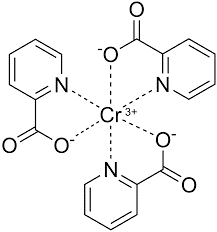
Chromium is a mineral that comes in a variety of forms. Some variants are harmful, such as those found in industrial pollutants; however, there are also safe variants such as trivalent chromium present in food. Although some scientists doubt whether this mineral is genuinely necessary, it does perform several crucial roles in the body.
Chromium picolinate is a component of the molecule uromodulin, which aids the hormone insulin, in its functions in the body. Chromium picolinate is more absorbable than any other type of chromium. As a result, this kind is frequently seen in nutritional supplements.
Benefits
It may improve blood sugar
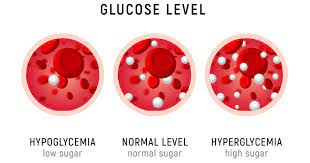
The hormone insulin plays a crucial function in directing the body to get blood sugar into the cells of the body. Insulin is a chemical produced by the pancreas that aids in the digestion of carbohydrates, fats, and proteins. Several studies have found that consuming chromium supplements can help diabetics improve their blood sugar levels.
One study discovered that taking 200 mcg of chromium per day for 16 weeks reduced blood sugar and insulin levels while enhancing the body’s responsiveness to insulin. Other studies have found that people with higher blood sugar levels and lesser insulin sensitivity may benefit more from chromium supplementation.
Furthermore, in a significant trial of over 62,000 people, those who took chromium-containing dietary supplements had a 27 percent decreased risk of developing diabetes. However, additional trials including three or more months of chromium supplementation in persons with type 2 diabetes found no improvement in blood sugar levels.
The study also found that chromium picolinate at 1,000 mg/day did not increase the body’s sensitivity to insulin in obese people without diabetes. In fact, a significant study of 425 healthy people discovered that chromium supplementation had no effect on blood sugar or insulin levels.
Reduce Insulin resistance
The effects of chromium on insulin activity are one of the most well-studied. Diabetics who suffer from insulin resistance are unable to utilize insulin appropriately. Chromium stimulates insulin activity, so enhancing the insulin-signaling pathway, inhibits regulators that impair insulin sensitivity, and enhances glucose uptake.
A study conducted on diabetic obese mice at The University of Wyoming showed the effects chromium picolinate has on weight loss. Their findings, published in the June 2008 edition of “Obesity,” reveal that chromium improved diabetes indicators by reducing both glucose intolerance and insulin resistance. This is due to chromium enhancing insulin signaling and reducing the number of sugars that remain in your system.
Lower cholesterol
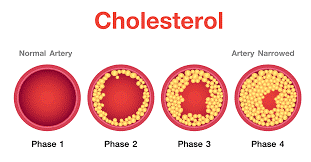
High cholesterol is an excess of lipids in the bloodstream that can cause plaque to form on the artery walls, leading to heart disease, a heart attack, or a stroke. According to a review published in the December 2006 edition of “Diabetes Technology and Therapeutics,” chromium picolinate may help decrease your cholesterol levels. The fact that chromium picolinate is more easily absorbed than other forms of chromium may contribute to its cholesterol-lowering properties.
Promote weight loss
According to The U.S. National Library of Medicine (1), though: “Chromium is important in the metabolism of fats and carbohydrates. It stimulates fatty acid and cholesterol synthesis, which are important for brain function and other body processes.”Chromium aids the body’s digestion of carbs and lipids. For bodybuilders and athletes, it doubles as an ergogenic (muscle-building) supplement.
Promote heart health
According to research (2010) published in “Pharmacological Reports,” chromium picolinate may also enhance your heart health. The researchers looked at the impact of chromium picolinate on many indicators of heart disease, such as high blood pressure and poor vascular function. Their findings revealed that, while this supplement has no effect on blood pressure, it does stimulate blood vessel relaxation and improves blood flow and the pace of recuperation of heart muscles after heart attack injury.
It can help with depression

There are a few suggestions as to why chromium may aid in the treatment of depression. One, based on preliminary animal research, has to do with the way chromium makes cells more responsive to insulin. The increased sensitivity facilitates the movement of tryptophan, an amino acid, through the blood-brain barrier and into the central nervous system.
Tryptophan is turned into serotonin, a neurotransmitter whose low levels are linked to depression. As a result, the more tryptophan delivered by insulin, the more serotonin accessible in the brain. Chromium may also aid in the treatment of depression by initiating and increasing the release of norepinephrine, another mood-regulating neurotransmitter.
Finally, research in both animals and people has revealed that chromium appears to reduce the activity of a specific type of serotonin receptor known as a 5-HT 2A receptor. Scientists are not sure why this happens, but it is comparable to the impact found in patients who have taken antidepressants for a long period.
So far, chromium has shown the most promise in treating depression subtypes affecting carbohydrate cravings and food management, such as atypical depression. One research, for example, found that chromium may impact symptoms such as increased appetite and eating, carbohydrate cravings, and diurnal mood fluctuation, a kind of depression in which symptoms are worse in the morning but improve during the day.
Helps Maintain Brain Health and Fight Cognitive Decline
Recent research emphasizes the importance of robust insulin response in preserving brain health and cognitive function in old age. As chromium improves glucose levels, insulin responsiveness, and brain function, it may act as a factor in reducing the effects of aging on the brain.
The antioxidant properties of chromium have been linked to improved hypothalamus function. The hypothalamus is a vital element of the autonomic nervous system that regulates body temperature, thirst, appetite, sleep, and emotional activity. According to research, chromium can help keep the hypothalamus younger, better regulate hunger in senior people, and avoid harmful effects on brain neurons caused by aging.
Many other regions of the brain, including the pineal gland and thymus, which are likewise influenced by insulin regulation, may benefit from increased chromium levels.
Helps Maintain Eye Health
Chromium can help protect against age-related eye problems such as glaucoma. Diabetes-related glaucoma occurs when fluid accumulates in the eye, adding pressure to the eye’s sensitive optic nerve, retina, and lens, eventually making the eye blind. Because of its involvement in blood glucose regulation, chromium can reduce the risk of diabetes and associated eye diseases.
It can reduce hunger cravings
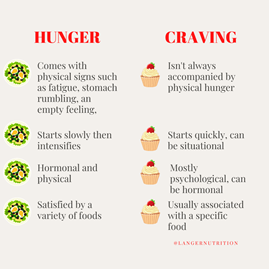
Most people who have attempted to lose weight and keep it off have experienced hunger and intense food cravings. Therefore, many people are looking for foods, supplements, or pharmaceuticals that may help them manage their cravings.
Several investigations have been conducted to determine if chromium picolinate may be beneficial in this capacity. In 8-week research, 1,000 mcg/day of chromium (chromium picolinate) decreased food consumption, hunger, and cravings in healthy overweight women.
The researchers speculated that the effects of chromium on the brain were responsible for these findings.
Other studies have focused on people suffering from binge-eating disorder or depression, as these populations may benefit the most from reducing urges or hunger. In 8-week research, 113 patients with depression were randomly randomized to either 600 mcg/day of chromium picolinate or a placebo.
The researchers discovered that chromium picolinate supplements lowered hunger and cravings when compared to a placebo. In addition, doses of 600 to 1,000 mcg/day, in particular, resulted in a decrease in the frequency of binge-eating episodes and depressive symptoms.
Other uses for chromium picolinate include the prevention or treatment of:
- Age-related mental decline
- High blood sugar in HIV patients
- Low blood sugar
- High blood cholesterol caused by medication
- Metabolic syndrome
- Heart attacks
- Polycystic ovary syndrome (PCOS)
- Bipolar disorder
- Turner’s syndrome
- High blood sugar related to steroid use
Risks
Chromium picolinate causes concern among some people since it affects neurotransmitters (substances in the body that transmit nerve impulses). This might be a problem for people suffering from depression, bipolar disease, or schizophrenia.
When coupled with diabetic medicine, excessive doses of chromium picolinate may have an additional impact, causing blood glucose levels to drop dangerously low. If you are on diabetic medication, you should see your doctor before taking chromium.
If you have certain medical issues, you may be unable to utilize chromium picolinate. These issues include:
- liver disease;
- kidney disease;
- diabetes (especially if you use insulin);
- an allergy to leather products;
- mental illness;
- a thyroid disorder; or
- if you use steroid medicine (fluticasone, beclomethasone, prednisone, and others)
It is unknown whether chromium picolinate will cause damage to an unborn child. Chromium picolinate can enter the breast milk and cause damage to a breastfeeding infant. If you are pregnant or breastfeeding, do not use this product without seeking medical counsel. Also, do not give supplements to children without first seeking medical counsel.
Drug Interactions
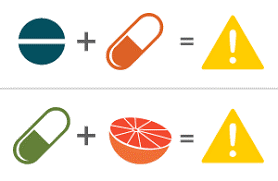
Chromium supplements used in conjunction with drugs that inhibit the synthesis of prostaglandins (hormone-like compounds), such as ibuprofen, indomethacin, naproxen, and aspirin, may boost chromium absorption in the body.
Other drugs you should not use while taking chromium are:
- Beta-blockers
- nonsteroidal anti-inflammatory drugs (NSAIDS)
- Insulin
- Nicotinic acid
- Prostaglandin inhibitors (including ibuprofen and aspirin)
- Corticosteroids
- Antacids
- H2 blockers
- Proton-pump inhibitors
- Synthroid (levothyroxine)
Side Effects
Possible side effects of chromium picolinate include:
- Headache
- Insomnia
- Mood swings
- Decreased action of insulin
- Stomach irritation
- Itching
- Flushing
- Rarely, a fast or irregular heartbeat (arrhythmia)
- Rarely, liver problems
- Rarely, kidney damage
Allergic Reactions
Get emergency medical help if you have signs of an allergic reaction: hives; difficulty breathing; swelling of your face, lips, tongue, or throat.
If you develop any of the following symptoms, stop taking chromium picolinate and contact your doctor right away:
- Problems with thinking, difficulty concentrating;
- balance or coordination issues; or
- Nausea, upper stomach discomfort, itching, tiredness, loss of appetite, dark urine, clay-colored feces, and jaundice are all symptoms of liver disorders (yellowing of the skin or eyes).
Dosage
The adequate intake for chromium for women 14-50 years old is 35 m/g, dropping to 30 mcg/day beyond 50. Males between the ages of 19 and 50 require 25 mcg per day, whereas men above the age of 50 require 20 mcg per day.
However, enough quantities are normally acquired in the diet from foods such as meat, fish, fruits, and whole grains, according to medical authorities. There is insufficient scientific evidence to identify safe and tolerated high chromium consumption limits.
Conclusion
Chromium is a vital mineral for human health. It performs a multitude of functions, but the most important is the metabolism of carbohydrates and fatty acids. At higher-than-average dosages, chromium picolinate helps control insulin and decrease blood sugar, as well as cut triglycerides and boost “good cholesterol.” Some data also suggest that it has an effect on weight loss and body composition.
